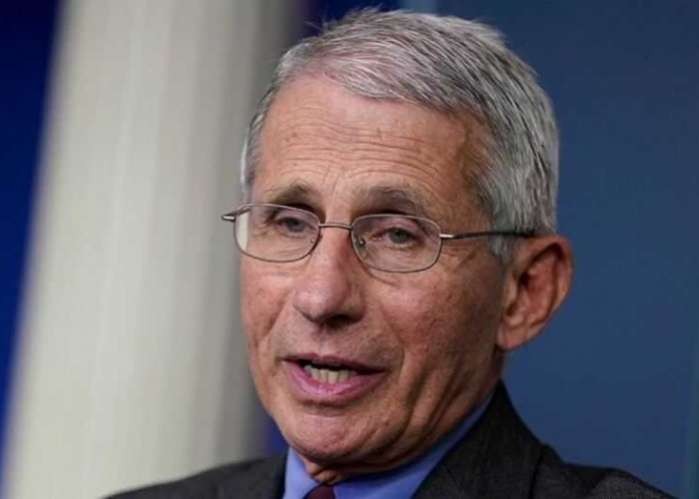White House blocks Anthony Fauci’s congressional testimony

The White House is blocking Anthony Fauci, the top U.S. infectious disease expert, from testifying Wednesday before a House of Representatives committee that is investigating how the Trump administration has handled the COVID-19 pandemic. Fauci’s testimony would be “counter-productive,” Judd Deere, a White House spokesman said in a statement.
“While the Trump administration continues its whole-of-government response to COVID-19, including safely opening up America again, and expediting vaccine development,” Deere said, “it is counter-productive to have the very individuals involved in those efforts appearing at congressional hearings.”
Fauci and U.S. President Donald Trump have not always agreed on how best to fight the spread of the virus. Fauci, director of the National Institute of Allergy and Infectious Diseases, has criticized the country’s testing capacity for the virus, calling it “a failing.” Last month, Trump retweeted a #FireFauci posting from another account, but the White House insists that the president is not looking to fire highly popular scientist.
More than half of the 50 U.S. governors have taken steps to partially relax lockdown restrictions, while hoping a spike in infections won’t trigger another round of business closures.
Other U.S. governors, many of whom are Democrats, are taking a more guarded approach, trying to balance the need to reopen their state economies with concerns about the coronavirus.
As some U.S. governors push to relax restrictions after Thursday’s expiration of White House distancing guidelines, Fauci, warned them to avoid lifting state limits prematurely.
“Obviously you could get away with that, but you’re taking a really significant risk,” Fauci said on CNN.
Another warning came in a report by the University of Minnesota, which said the pandemic could last two more years. The report, released Thursday by the university’s Center for Infectious Disease Research and Policy, warned that the U.S. should prepare for a decline in infections followed by a spike as early as this fall.
The U.S. Food and Drug Administration has granted an emergency use authorization for the antiviral drug remdesivir, clearing the way for more hospitals to use the drug. Recent clinical data show the drug might be a promising treatment for the coronavirus.
More than 3.3 million people around the world have been infected with COVID-19 and nearly 284,000 infected with the virus have died.
In the U.S., there are more than 1.1 million COVID cases and more than 65,000 deaths.
U.N. Secretary-General Antonio Guterres told BBC that it is a tragedy that the world’s leaders have not been able “to come together to face COVID-19 in an articulated coordinated way.”
The U.N. estimates that 8 percent of the world’s population, about 500 million people, could be forced into poverty by year’s end because of the devastation brought by the virus.
As countries consider how and when to reopen, India, the world’s second-most populous country, said Friday it would extend its nationwide lockdown for two more weeks after Monday. But the country’s ministry of home affairs said “considerable relaxations” would be allowed in lower-risk areas, including the manufacturing and distribution of essential goods between states.
Many European countries have begun gradually reopening or have plans to do so in the coming days. The economy in the eurozone – European countries that use the common euro currency – shrank a record 3.8 percent in the first quarter of the year.
In Britain, health minister Matt Hancock announced Friday the country has hit its target of carrying out 100,000 COVID-19 tests a day. Prime Minister Boris Johnson said Thursday that Britain is past the peak of the coronavirus outbreak and that cases are declining. The coronavirus has killed more than 27,500 people in Britain and infected about 178,700.
Italy, Spain and France on Friday reported declines in deaths from the virus, down from the peaks of their countries’ outbreaks.

